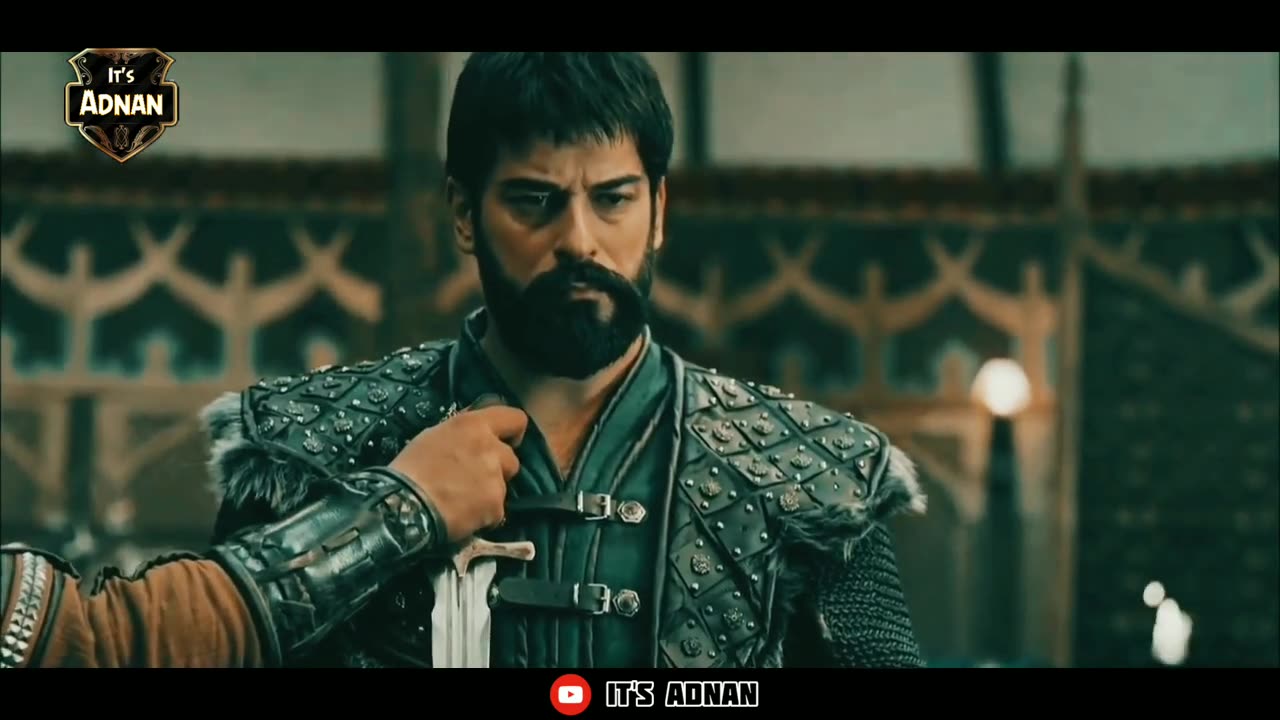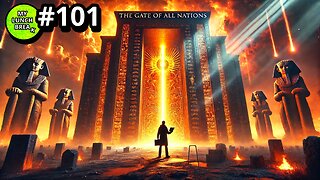Premium Only Content

The Ottoman Empire was a significant and long-lasting empire that existed from around 1299 to 1922. It originated in the region of Anatolia in modern-day Turkey and expanded to encompass parts of Europe, Asia, and Africa. Here's a brief overview of its history and key aspects:
1. Foundation and Expansion: The Ottoman Empire was founded by Osman I, a Turkish tribal leader, around the end of the 13th century. Under the leadership of subsequent rulers, particularly Mehmed the Conqueror, the empire rapidly expanded its territory, capturing Constantinople (modern-day Istanbul) in 1453 and bringing an end to the Byzantine Empire. This marked a pivotal moment in the empire's history.
2. Geographical Reach: At its zenith, the Ottoman Empire controlled vast territories, including parts of Southeast Europe, Western Asia, and North Africa. Its territorial holdings extended from the borders of Persia in the east to Algeria in the west, and from the Arabian Peninsula in the south to Hungary in the north.
3. Administrative Structure: The Ottoman Empire was known for its unique administrative and social structure. It was ruled by a sultan, who held both political and religious authority. The empire was organized into provinces called "vilayets," which were further subdivided into districts. The government was characterized by a complex bureaucracy and a hierarchical system.
4. Religion and Society: The Ottoman Empire was a Muslim-majority state, and Islamic law (Sharia) played a significant role in its legal and social systems. While non-Muslims (dhimmis) had certain legal protections, there were also restrictions placed on them. The millet system allowed non-Muslim religious communities to govern themselves to some extent.
5. Cultural and Architectural Achievements: The Ottomans made substantial contributions to architecture, art, and culture. They are known for their distinctive architectural style, characterized by domed structures and intricate tile work. Famous examples include the Blue Mosque (Sultan Ahmed Mosque) and the Hagia Sophia in Istanbul.
6. Decline and Dissolution: The empire began to decline in the late 17th century due to a combination of factors, including military defeats, internal strife, and external pressures. It faced significant challenges from European powers, such as the Austrians, Russians, and later the British and French. The empire's inability to modernize and adapt to changing geopolitical dynamics contributed to its downfall.
7. World War I and End of the Empire: The Ottoman Empire aligned with the Central Powers (Germany and Austria-Hungary) during World War I. After the war, the empire's territories were partitioned by the victorious Allies. The Turkish War of Independence, led by Mustafa Kemal Atatürk, resulted in the establishment of the Republic of Turkey in 1923, marking the official end of the Ottoman Empire.
The Ottoman Empire has left a lasting impact on the history, culture, and architecture of the regions it once ruled. Its legacy continues to be studied and discussed by historians and scholars to this day.
-
 17:06
17:06
Professor Nez
9 hours ago🚨BREAKING: Elon Musk to BUY MSNBC!? Dems STUNNED by Brian Williams’ Viral Video!
46.1K64 -
![If You Smell LALALALA What CHiLi IS COOKING!!... #RUMBLETAKEOVER [Overwatch 2]](https://1a-1791.com/video/s8/1/e/s/X/3/esX3u.0kob-small-If-You-Smell-LALALALA-What-.jpg) 4:27:40
4:27:40
CHiLi XDD
11 hours agoIf You Smell LALALALA What CHiLi IS COOKING!!... #RUMBLETAKEOVER [Overwatch 2]
27.9K1 -
 12:00:03
12:00:03
Delnorin Games
12 hours ago🔴 Live - Star Citizen
55.2K12 -
 1:39:44
1:39:44
HELMET FIRE
13 hours agoDEADROP IS BACK!
143K10 -
 10:03
10:03
Tundra Tactical
15 hours ago $15.10 earnedBrandon Herrera Vies Bid for ATF Director!
92K16 -
 22:01
22:01
DeVory Darkins
1 day ago $36.29 earnedHakeem Jeffries SHUTS DOWN The View as Matt Gaetz Speaks out
80.8K129 -
 2:02:54
2:02:54
Mally_Mouse
14 hours agoLet's Play!! - Spicy Saturday
60.3K2 -
 1:33:06
1:33:06
Slightly Offensive
15 hours ago $30.74 earnedAre You Ready for What's Coming Next? | Just Chatting Chill Stream
77.2K42 -
 32:10
32:10
MYLUNCHBREAK CHANNEL PAGE
1 day agoThe Gate of All Nations
148K63 -
 13:07
13:07
Sideserf Cake Studio
19 hours ago $3.86 earnedIS THIS THE MOST REALISTIC SUSHI CAKE EVER MADE?
64.6K4